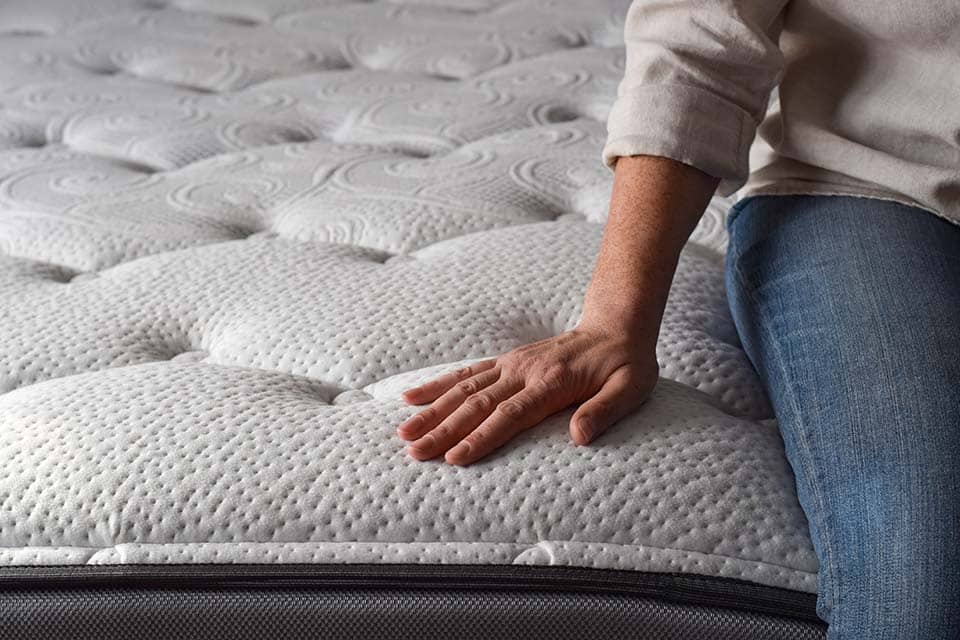
Ever ask yourself, can you catch up on lost sleep?
Imagine the idea as a scene from a mobster movie. The clock strikes midnight when there’s a startling knock at your door. It’s the boss, Mr. Sandman. He says what you’ve known all along. You’re late on your sleep and he’s come to collect.
You start spewing all the clichéd excuses. There’s a big project at work that’s been keeping you late. You’re stressed out about paying for your daughter’s braces. In panicked desperation, you even rat out your beloved sleep partner: “It’s not my fault, Mr. Sandman! John snores like a horse. He keeps me up! He’s the reason I’m up at night! Blame him!”
Shame on you. It doesn’t matter why you’ve neglected your sleep. You simply have. And eventually, you’ll have to pay up.
A bit melodramatic? Sure. But missing out on sleep – even just a little bit each night – will get you into some serious hot water. Lack of sleep can lead to changes in mood, decline in physical performance and cognitive issues. (Think: irritability, impaired driving and difficulty remembering things.) Over time, sleep deprivation can bring on more serious health complications like obesity, depression and heart disease. It’s a steep price to pay just to have some extra hours awake each week.
Sleep Debt
The Better Sleep Council recommends that adults get between 7-8 hours of sleep each night; a 2014 survey conducted for Better Sleep Council found that fewer than half (48%) of Americans reported getting that much sleep on weekdays. Experts at the Stanford University Sleep Clinic refer to this difference between the amount of sleep you should be getting each night and the sleep you actually get as sleep debt.
The Weekend Rebound
Many of us use weekends to repay the sleep debt we accumulate during the week. In our 2014 survey, 65% of responders say they get at least 7 hours of sleep on weekends – a 17% increase versus weekdays.
Other research echoes these results: in 2018, a study reported in the Journal of Sleep Research tracked 38,000 Swedish adults for 13 years and found that catching up on sleep over the weekend can cancel out some of the negative health impacts that come with lack of sleep during the week.
While sleeping in on the weekends may ease your sleep debt, it’s not a cure-all.
Take a Sleep Staycation
While you can quickly recover from the short-term effects of temporary sleep debt by tacking on an extra hour or two of weekend sleep, don’t expect one extended hibernation session to make up for chronic sleep deprivation. It can take a long time to get back to your natural sleep pattern if you’ve been depriving yourself of adequate sleep for months or years.
Experts at Harvard Medical School suggest you hit restart by taking a vacation with no agenda or taxing activities. Go to bed whenever you feel tired, unplug the alarm and let your body wake you naturally. In the beginning, you may find yourself sleeping for 10 or 12 hours at a time. As the days pass, and as you erase your sleep debt, your body will identify the innate amount of sleep that’s right for you.
Avoiding the Sleep Yo-Yo
Once you learn how much sleep you truly need each night, it’s important to make sleep part of your daily routine so you don’t slide back into sleep debt:
- Schedule your day so you go to sleep and wake up on a consistent schedule that allows for sufficient time in bed.
- Establish a good bedtime routine to train yourself to fall asleep faster.
- Make sure an old mattress isn’t preventing you from getting quality sleep.
- Set up your bedroom as an ideal sleep environment.
- If you still feel tired after a long night in bed, ask your doctor if you have a sleep disorder that can be treated.
What About Naps?
An afternoon power nap can certainly help make up for missing sleep, too. But be sure you’re napping the right way. Don’t doze off for so long that it interferes with your nighttime sleep routine. The rejuvenating benefits of sleep come in the deep, slow-wave sleep cycle that is only reached during longer periods of sleep.
Are you missing out on quality sleep? Follow our 5 tips to make #bettersleep part of your daily routine, so you don’t slide into sleep debt. #BSCSleepTips @BetterSleepOrgSources:
- https://www.scientificamerican.com/article/fact-or-fiction-can-you-catch-up-on-sleep/
- http://time.com/3691992/sleep-hours-recommendations/
- http://time.com/5288704/can-you-catch-up-on-sleep/
- https://onlinelibrary.wiley.com/doi/full/10.1111/jsr.12712
- https://www.health.harvard.edu/womens-health/repaying-your-sleep-debt
- https://www.webmd.com/sleep-disorders/news/20100115/sleep-debt-hard-to-repay#1
This blog provides general information about sleep and sleep products. The words and other content provided in this blog, and in any linked materials, are not intended to replace a one-on-one relationship with a qualified heath care professional. This blog should not be construed as medical advice or used to diagnose, treat, prevent or cure any disease or condition. If the reader or any other person has a medical concern, he or she should consult with an appropriately-licensed physician or other health care professional. This blog is not a substitute for professional medical advice, diagnosis or treatment, and should not be relied upon to make decisions about your health or the health of others. Never disregard professional medical advice or delay in seeking it because of something you have read on this blog or elsewhere on bettersleep.org. If you think you may have a medical emergency, immediately call your doctor or dial 911.



